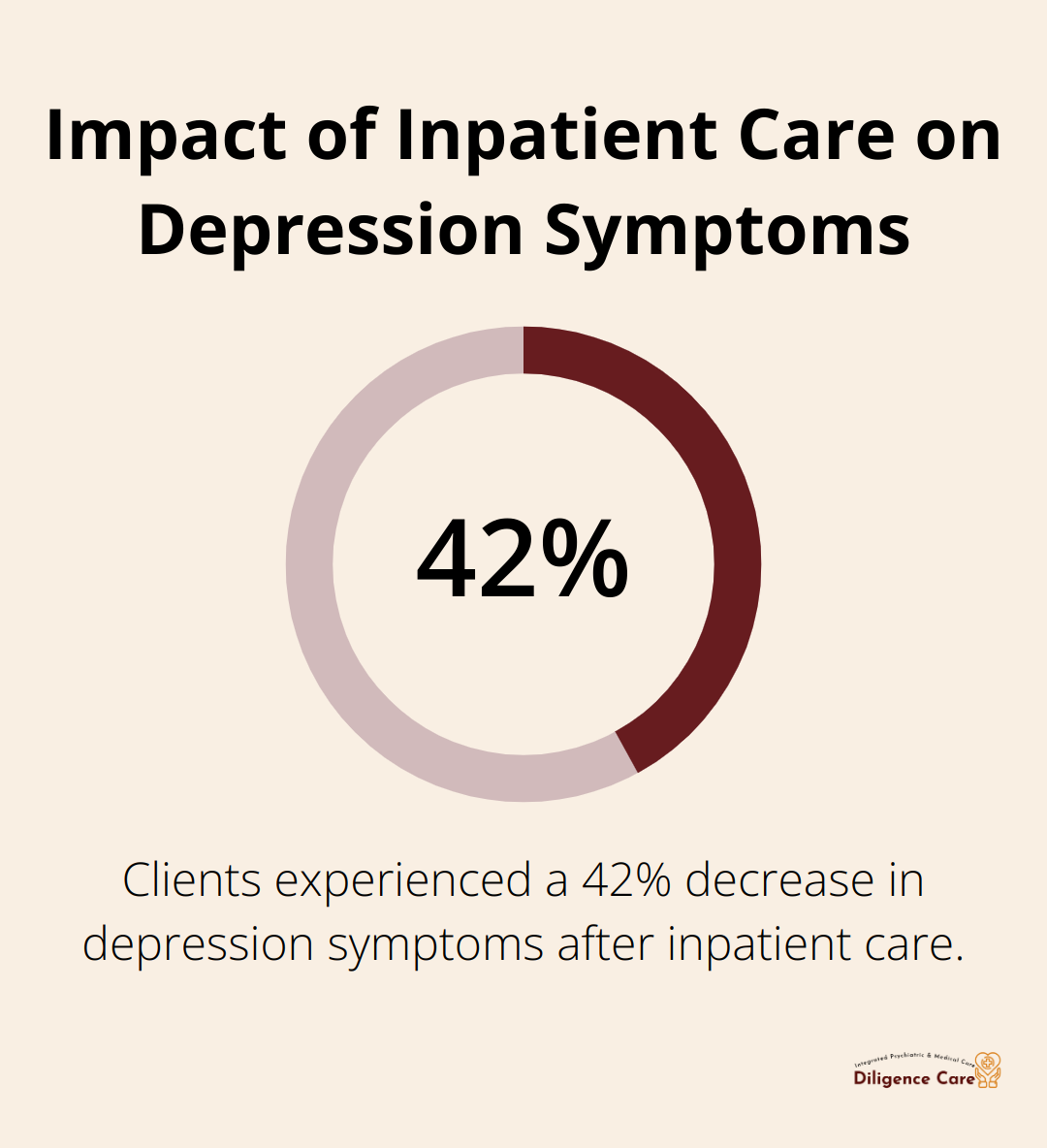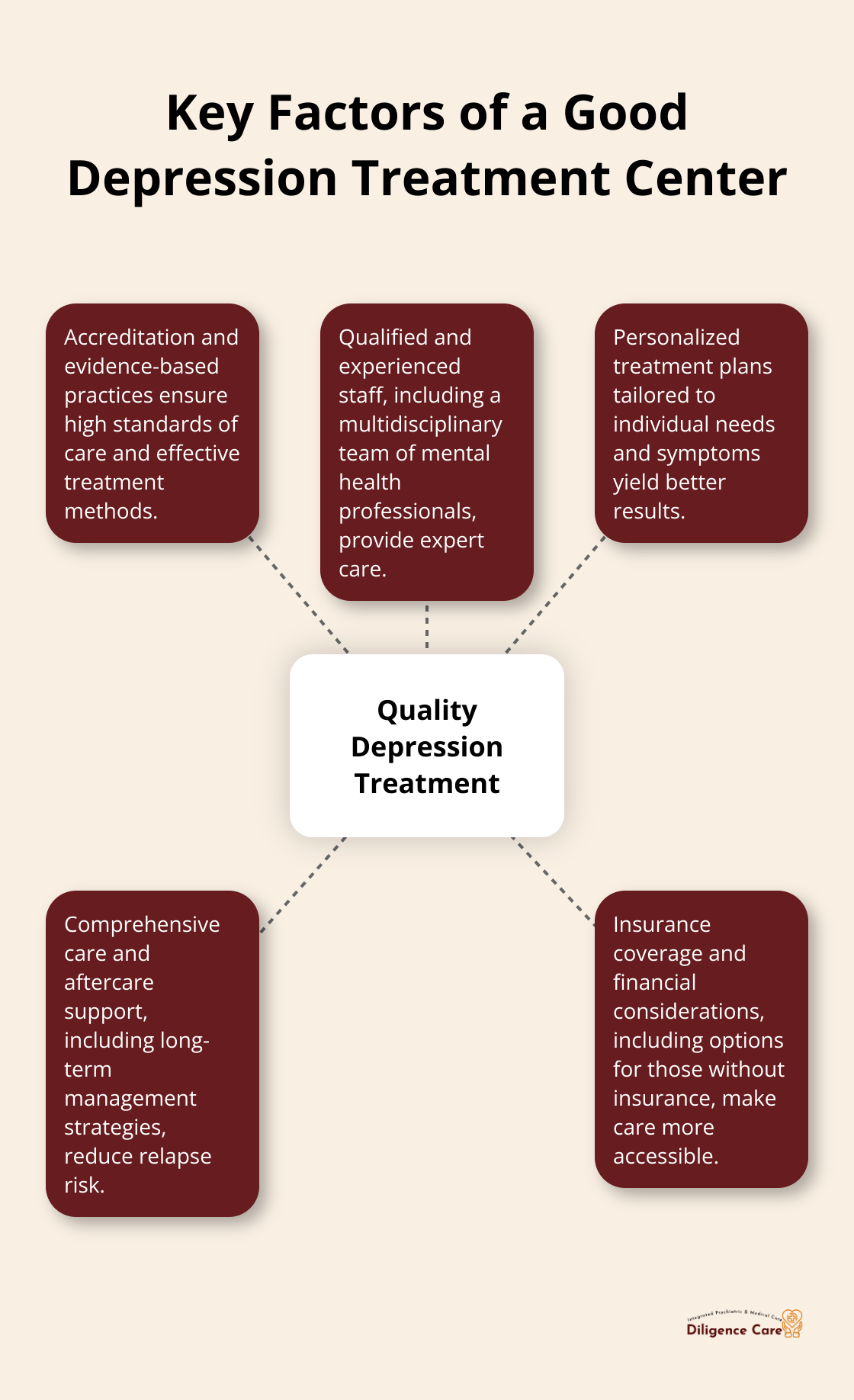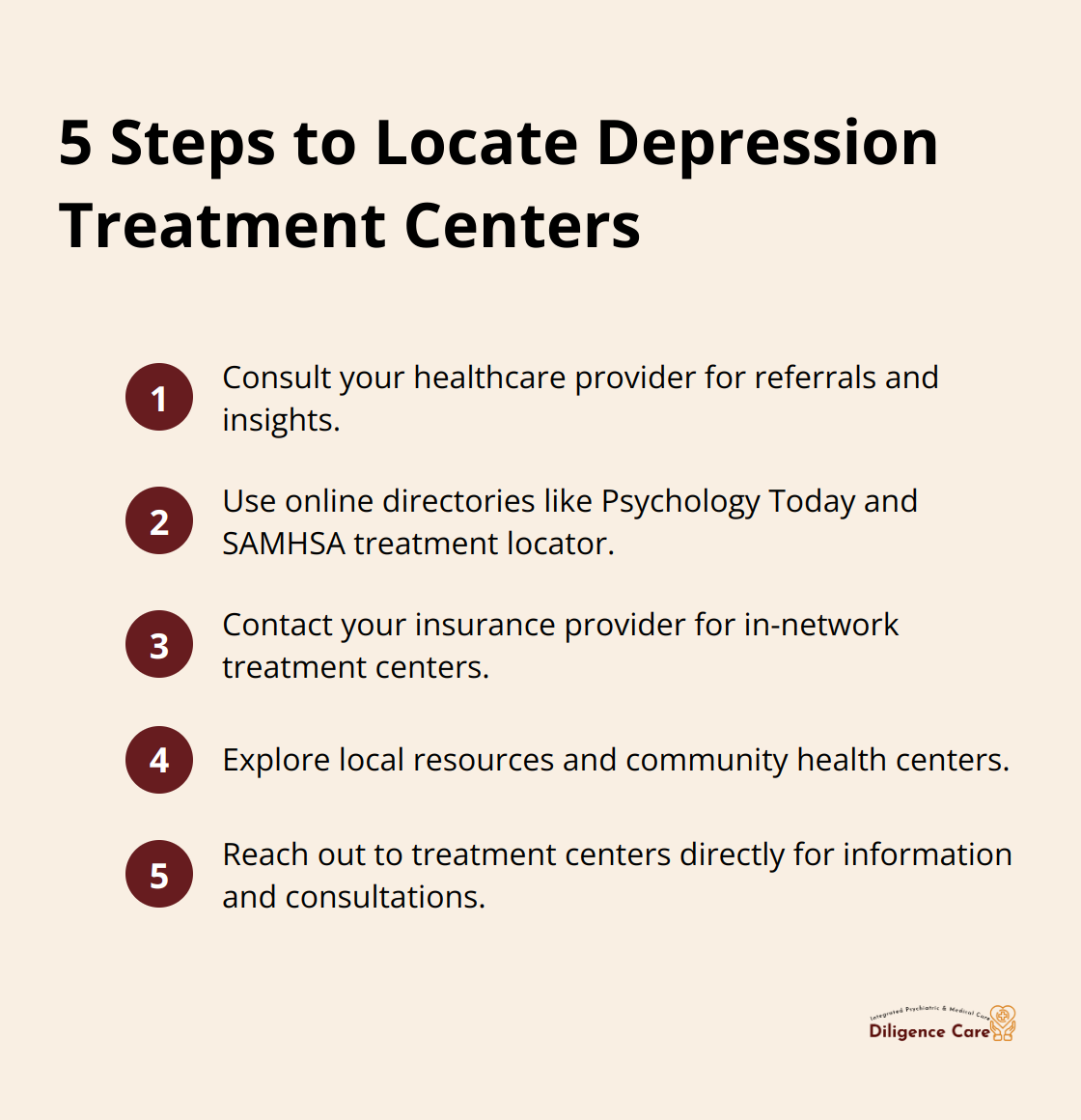
Finding Depression Treatment Centers in Your Area
Depression affects millions of people worldwide, and finding the right treatment is a critical step towards recovery. At Diligence Integrated Care, we understand the importance of accessible mental health care.
This guide will help you navigate the process of finding treatment centers for depression near you. We’ll explore different types of facilities, key factors to consider, and practical ways to locate suitable options in your area.
Types of Depression Treatment Centers
Depression treatment centers offer various options to meet different levels of care and individual needs. Understanding these options will help you make an informed decision about your mental health journey.
Inpatient Facilities: Intensive Care for Severe Cases
Inpatient facilities provide 24/7 care for individuals with severe depression or those at risk of self-harm. These centers offer a structured environment with constant monitoring, medication management, and daily therapy sessions. According to a 2024 outcomes report, clients entering inpatient care experienced a 42% decrease in depression symptoms.

Outpatient Programs: Flexibility for Mild to Moderate Depression
Outpatient programs allow individuals to receive treatment while maintaining their daily routines. These programs typically involve regular therapy sessions, medication management, and support groups. They suit those with mild to moderate depression or serve as a step-down option after inpatient care. A 2024 study compared the effectiveness of behavioral activation psychotherapy versus antidepressant medication in outpatient settings.
Partial Hospitalization Programs: A Middle Ground
Partial hospitalization programs (PHPs) offer intensive treatment during the day while patients return home in the evenings. These programs usually run 5-7 days a week and include various therapies, medication management, and skill-building activities. PHPs benefit those who need more support than traditional outpatient care but don’t require 24-hour supervision.
Residential Treatment Centers: Long-Term Care in a Home-Like Setting
Residential treatment centers provide a home-like environment for individuals who need extended care (typically 30-90 days). These centers offer a structured daily routine, individual and group therapy sessions, and life skills training. They’re particularly useful for those with chronic depression or co-occurring disorders.
Specialized Treatment Centers: Tailored Care for Specific Needs
Some treatment centers specialize in specific demographics or conditions. For example, there are centers that focus on treating depression in adolescents, older adults, or individuals with co-occurring substance use disorders. These specialized centers can provide more targeted and effective care for certain populations.
The choice of treatment center depends on factors such as the severity of your depression, your daily responsibilities, and the level of support you need. As you consider these options, it’s important to evaluate the factors that contribute to a high-quality treatment center. Let’s explore these factors in the next section.
What Makes a Good Depression Treatment Center?
Accreditation and Evidence-Based Practices
A reputable depression treatment center should have proper accreditation from recognized bodies such as The Joint Commission or the Commission on Accreditation of Rehabilitation Facilities (CARF). These accreditations ensure that the center meets high standards of care and follows evidence-based practices.
Cognitive-behavioral therapy (CBT) stands out as a widely recognized and effective treatment for depression. Look for centers that offer CBT and other evidence-based therapies like interpersonal therapy or dialectical behavior therapy.
Qualified and Experienced Staff
The qualifications and experience of the staff significantly impact the quality of care you receive. A good treatment center should have a multidisciplinary team of mental health professionals, including psychiatrists, psychologists, and licensed therapists.
Personalized Treatment Plans
Depression affects everyone differently, so a standardized approach often falls short. Centers that offer personalized treatment plans tailored to your specific needs, symptoms, and circumstances tend to yield better results.
Comprehensive Care and Aftercare Support
Effective depression treatment extends beyond addressing immediate symptoms. It should also include strategies for long-term management and relapse prevention. Try to find centers that offer comprehensive care, including medication management, therapy, and lifestyle interventions.
Aftercare support plays an equally important role. Ongoing support after initial treatment can significantly reduce the risk of relapse.
Insurance Coverage and Financial Considerations
Treatment costs can present a significant concern for many people seeking help for depression. Check if the center accepts your insurance and what specific services are covered. Many quality treatment centers work with various insurance providers to make care more accessible.
If you lack insurance or have insufficient coverage, ask about sliding scale fees or payment plans. Some centers offer financial assistance programs to ensure that cost doesn’t become a barrier to receiving necessary care.
While cost matters, it shouldn’t serve as the sole determinant in choosing a treatment center. The quality of care and the center’s ability to meet your specific needs should take precedence.

Now that we’ve explored what makes a good depression treatment center, let’s move on to the practical steps you can take to find these centers in your area.
How to Locate Depression Treatment Centers
Consult Your Healthcare Provider
Start your search for depression treatment centers by consulting your primary care physician or current mental health professional. These professionals often have networks of trusted specialists and can provide referrals based on your specific needs. They can offer valuable insights into the reputation and specialties of different centers in your area.
Use Online Directories
Online directories provide comprehensive listings of mental health providers. Tools like Psychology Today and the SAMHSA treatment locator allow you to filter by location, treatment type, and insurance acceptance. SAMHSA offers free support through their training and technical assistance centers on various behavioral health topics. The National Alliance on Mental Illness (NAMI) also offers a helpline and online resources to connect individuals with local treatment options.
Contact Your Insurance Provider
Reach out to your insurance provider directly to obtain a list of in-network treatment centers. Many insurance companies now offer online portals or apps that allow you to search for covered providers easily. Ask about coverage details, including copayments and any pre-authorization requirements. This step can help you narrow down your options and avoid unexpected costs.
Explore Local Resources
Local mental health organizations and community health centers often maintain lists of treatment options in your area. These organizations can provide valuable information about the reputation and specialties of different centers. Support groups like the Depression and Bipolar Support Alliance can offer peer recommendations and firsthand experiences with local treatment facilities. Community mental health resources, including local organizations and nonprofits, often provide or recommend group therapy programs.
Reach Out to Treatment Centers
Don’t hesitate to contact treatment centers directly. Many facilities offer informational sessions or initial consultations to help you determine if their programs align with your needs. Ask about their treatment approaches, success rates, and aftercare support to make an informed decision. This direct communication can provide a clearer picture of what to expect from each center.

Final Thoughts
Finding the right depression treatment center marks a significant step towards recovery and improved mental health. We explored various options, from inpatient facilities to flexible outpatient programs, each catering to different needs and severity levels. Professional help for depression plays a vital role in managing symptoms and enhancing quality of life.
When searching for treatment centers for depression near you, consider factors such as accreditation, treatment approaches, staff qualifications, and insurance coverage. These elements contribute to the overall quality and effectiveness of the care you’ll receive. The first step towards recovery might feel daunting, but it’s a courageous and important move.
At Diligence Integrated Care, we offer comprehensive, personalized mental health care in San Bernardino, Riverside, and Southern California. Our team of experienced professionals provides a range of services, including therapy and medication management. Don’t let depression hold you back from living your best life; reach out today and take that first step towards recovery.











